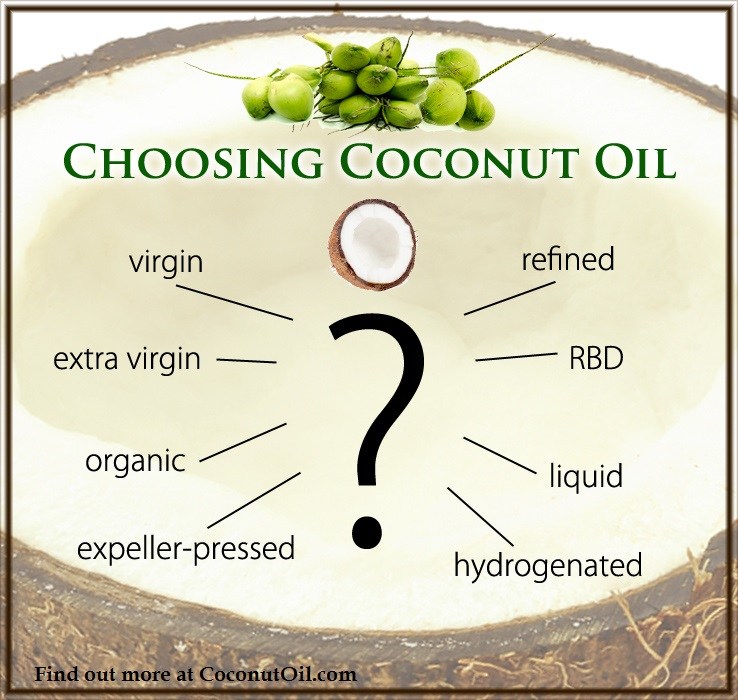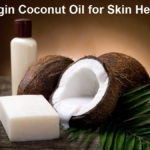by Brian Shilhavy
Digestive Health and Weight Gain
When we are eating healthy whole foods with the absence of highly refined carbohydrates, weight gain should not be a problem. However, many people who have switched over to healthy diets, and have even limited their carbohydrate intake, still have problems losing weight. One reason is because many Americans suffer from some kind of digestive disorder that prevents them from properly digesting their food. Without a properly working digestive system, essential vitamins and minerals that are necessary to maintain proper weight may not be absorbed adequately from the foods we eat, even if we are eating healthy foods.
Candida is one digestive disorder where the digestive tract is overloaded with yeast because of the lack of probiotics in our digestive system. You can read more about Candida and coconut oil here. Other digestive disorders common today would include disorders such as Irritable Bowel Syndrome, Ulcerative Colitis, Gastritis, Diverticulosis and Constipation. More severe digestive disorders would include Crohn’s Disease, where many people have such a hard time digesting foods properly that they are actually underweight.
Whether or not you have a diagnosed digestive disorder, chances are that your digestive system needs some detoxifying and help! This is especially true the older we get. It is reported that about 95 million Americans suffer from some kind of digestive disorder. Americans spend more than $100 billion dollars annually on digestive health care! This is over three times as much as is spent annually on weight loss (about $33 billion dollars). Adding coconut oil to your diet can help overcome these problems that affect our health and our ability to lose weight, and they are unique part of the Coconut Diet that makes it more effective than popular low-carb diet plans.
I have suffered from ulcerated colitis for three years. My internist doctor said it would be a chronic disease since they don’t know what causes it. Each year I have a colonoscopy – very painful. I started taking one tablespoon of Virgin Coconut Oil each morning and a teaspoon of curcumin spice in my green tea. I have been doing this for 1 year and after my last colonoscopy, the doctor asked me why I was there. I told her I suffer from colitis. She then informed me that I no longer have any problem with my colon and it is clean of all problems. This I attribute to Virgin Coconut Oil and curcumin spice. Edward – Coconut Diet Forums
I’ve been using coconut oil about a month now, 2 tsp. per day. Mix it in anything possible or just throw it on top of pizza slices. I have IBS and am a compulsive overeater. Within a short time of taking it, I realized I was no longer wanting food. In the past month I have lost 5 lbs. and just as many inches. Instead of being a computer potato, I am up and about, doing things….just have so much more energy. The biggest change is the IBS. Instead of the runs now, I almost need laxatives. *laughing* It’s been since my early 20’s that I’ve felt this way….I’m 42 now. Coconut oil is fantastic!!! Net B.
Digestive Disorders and Coconut Oil
Many people have reported great relief from digestive disorders such as Crohn’s Disease and Irritable Bowel Syndrome after adding coconut oil into their diet. Pharmacist Joe Graedon and his wife Dr. Teresa Graedon of The People’s Pharmacy tell the following story about Macaroons:
The coconut cookie craze started when we got a letter from Donald … in Pittsfield, Massachusetts: “I have had Crohn’s disease for forty years, and during that time I have had a never-ending battle with diarrhea. Lomotil helps some, but it doesn’t eliminate the problem. Three months ago I bought a box of … Coconut Macaroon cookies. I’ve been eating two a day and have not experienced diarrhea in that time. If by chance I eat three in a day, I get constipated. Believe me, I have a new life now. My brother-in-law has a friend who just had cancer and suffered diarrhea as a consequence of the operation. We told him about the cookies, and they corrected his diarrhea. I would be delighted if others were helped by my discovery too.”
>We chuckled when Donald’s letter arrived. Cookies for diarrhea, what a joke. Yet Crohn’s is no laughing matter. Inflammatory bowel disease can be a life-and-death condition with surgery and removal of portions of the large intestine a not-uncommon complication. This disorder often leads to industrial-strength diarrhea. It is a persistent condition that can last for decades, if not a lifetime. We were rather skeptical that Donald’s unorthodox approach would help anyone else… It seemed bizarre, but we could not resist sharing his experience with our readers. To our surprise, the letters started pouring in. One woman speculated that it might be the coconut that was working the magic. We started to hear from other people who tried the macaroons. One man wrote about his experience: “With chronic diarrhea due to Crohn’s disease I will try anything for relief. I read about the person who controlled his diarrhea by eating two …. Coconut Macaroon cookies a day and decided to give it a try. Relief is imperfect and somewhat inconsistent, but I’ve had the problem for twenty-five years. There is substantial improvement, better than from any medicine I have taken.”1
I also have ulcerative colitis. I have had it for 16 years. I had been symptom free (with no meds) for about 10 years. Last summer, my symptoms returned and I was put back on Asacol (orally) and Canasa (suppositories). After getting my symptoms under control, I came off the Canasa. My doctor told me to take it as needed. Well, every time I stopped taking it, my symptoms started to return. I began taking Virgin Coconut Oil (VCO) about 1 month ago and haven’t had to go back to the Canasa since! It’s one of the many benefits I have begun to see from VCO! Lori – Coconut Diet Forums
Coconut Oil and Intestinal Absorption
Macaroons are made up mainly of desiccated (dried) coconut, which is 60-70% fat (coconut oil). Coconut oil is one of nature’s richest sources of medium chain triglycerides, or fatty acids (MCTs). These smaller chain fatty acids have been shown to absorb easier and quicker in the digestive tract than longer chain fatty acids found in other fats, like vegetable oils. In fact, studies are now showing that longer chain fatty acids found in polyunsaturated oils (soy, corn, and other vegetable oils) are the most harmful oils for those with intestinal problems like Crohn’s disease, as they increase inflamation. A study done in the UK in 2003 reported:
Enteral nutrition is effective in inducing remission in active Crohn’s disease. Speculation on the underlying mechanism of action has moved away from the presentation of nitrogen and towards the fat content of the various enteral feeds. Evidence is accumulating that additional long-chain triglyceride in such feeds impairs the response rate in active Crohn’s disease, whereas no deleterious effects of additional medium-chain triglyceride have been identified. It has been proposed that long-chain triglycerides composed from n-6 fatty acids may be the most harmful, since such fatty acids are substrates for inflammatory eicosanoid production.2
MCTs on the other hand, are not only more easily absorbed in the digestive tract, they apparently also help other nutrients become absorbed as well. A study done in Denmark in 1998 compared absorption of fat in patients who either had their colon removed or partially removed. The patients were fed a diet of either long-chain fatty acids (LCT) or medium chain fatty acids (MCTs) combined 50% with LCT. Their results showed that those fed LCT deposited most of the fat into the faeces and were not absorbed in the bowel. The group fed the MCT diet not only absorbed the MCTs better, but the MCTs apparently helped them absorb the LCT as well: “MCT redoubled fat (MCT+LCT) absorption from 23% to 58% in patients with a colon, and increased overall bomb calorimetric energy absorption from 46% to 58%.”3
Another study done in 2009 in Spain that compared sunflower oil with coconut oil on mice found that the mice fed the MCT diet with coconut oil had reduced colitis and reduced intestinal inflammation offering therapeutic hope for those suffering from Crohn’s disease.4
This ability of MCTs to help other nutrients in absorption is also seen in a study done in Belgium in 2002. This study compared the absorption rate of vitamin E (alpha-tocopherol) in formulas with either exclusive LCTs or a 50/50 formula of MCT and LCT. The results showed that serum alpha-tocopherol remained the same in those given exclusively LCT formulas, but doubled in those given the MCT/LCT formulas.4 Therefore those suffering from digestive disorders such as Crohn’s disease and IBS should see very positive results from consuming coconut oil rich in MCTs, not only for the health benefits of coconut oil itself, but because the fatty acids in coconut oil could help them absorb nutrients from other foods as well.
For years I suffered from IBS or Crohn’s disease. The suffering was not minor, I was in sheer misery most of the time. Often it occurred to me, other people have no idea how much pain I endure just to make it through the day. I am now well, I feel completely healed. I trace the beginning of my pain relief and then recovery to the day I believe I was Divinely led to your coconut oil. Your coconut oil has the additional advantage of being delicious. I tried some other coconut oils that were supposedly excellent, but they did not compare to yours in “deliciosity”. Thank you for your excellent product and also the graciousness of your staff, which has always been very helpful. Sincerely, Doug Phoenix, Arizona
Original article source here: http://www.coconutdiet.com/digestive_disorders.htm
References
1. Joe Graedon and Teresa Graedon, The People’s Pharmacy Guide to Home and Herbal Remedies (St. Martin’s Press, New York 1999) p.193-195
2. Gorard DA, “Enteral nutrition in Crohn’s disease: fat in the formula.” European Journal Gastroenterol Hepatology. 2003 Apr;15(4):459
3. Jeppesen PB, Mortensen PB, “The influence of a preserved colon on the absorption of medium chain fat in patients with small bowel resection.” Gut. 1998 Oct;43(4):478-83.
4. Mañé J, Pedrosa E, et. al. “Partial replacement of dietary (n-6) fatty acids with medium-chain triglycerides decreases the incidence of spontaneous colitis in interleukin-10-deficient mice.” The Journal of Nutrition 2009 Mar;139(3):603-10.
5. Manuel-y-Keenoy B, Nonneman L, et. al. “Effects of intravenous supplementation with alpha-tocopherol in patients receiving total parenteral nutrition containing medium- and long-chain triglycerides.” European Journal Clinical Nutrition 2002 Feb;56(2):121-8.
About the author: Unlike many people who write about coconut oil by simply reading about it, Brian Shilhavy actually lived in a coconut producing area of the Philippines for several years with his family, observing firsthand the differences between the diet and health of the younger generation and those of his wife’s parents’ generation still consuming a traditional diet. This led to years of studying Philippine nutrition and dietary patterns first hand while living in a rural farming community in the Philippines. Brian is the author of the best-selling book: Virgin Coconut Oil: How it has changed people’s lives and how it can change yours!
Read the Virgin Coconut Oil eBook on Your Mobile Device!







 HHS Secretary Kennedy Breaks His Promise: "War on Saturated Fat" Kept in Tact with New U.S. Dietary Guidelines
HHS Secretary Kennedy Breaks His Promise: "War on Saturated Fat" Kept in Tact with New U.S. Dietary Guidelines Research Continues to Show Virgin Coconut Oil's Effectiveness in Treating Cancer
Research Continues to Show Virgin Coconut Oil's Effectiveness in Treating Cancer Coconut Oil Continues to Benefit Alzheimer's Patients over Drugs as Studies Continue for Neurological Benefits
Coconut Oil Continues to Benefit Alzheimer's Patients over Drugs as Studies Continue for Neurological Benefits How the Simple High-Fat Low-Carb Ketogenic Diet Continues to Change People's Lives
How the Simple High-Fat Low-Carb Ketogenic Diet Continues to Change People's Lives New Studies Continue to Show that Coconut Oil is the Best Oil for Treating Skin Conditions and Maintaining Healthy Skin and Teeth
New Studies Continue to Show that Coconut Oil is the Best Oil for Treating Skin Conditions and Maintaining Healthy Skin and Teeth